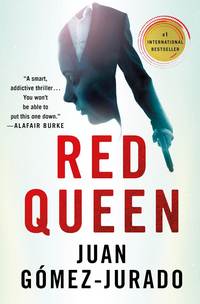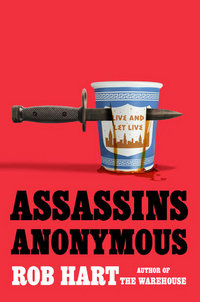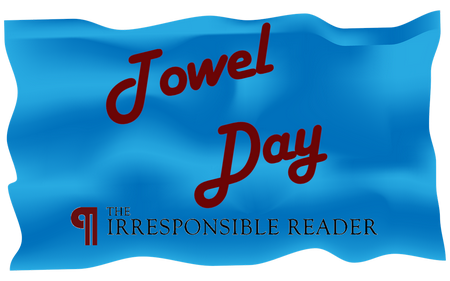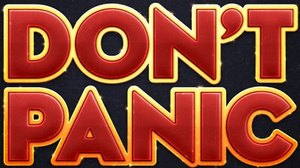by Rob Hart
DETAILS:
Publisher: G.P. Putnam's Sons
Publication Date: June 11, 2024
Format: eARC
Length: 320
Read Date: May 27-29, 2024


What’s Assassins Anonymous About?
Almost a year ago, Mark walked away from his old life and into a 12-step meeting. It’s been a struggle for him—he’s almost relapsed, he came close to suicide, and he’s struggled every day. But with the support of the other people in his group, his sponsor, and a little orange cat who came into his life at just the right time—Mark is making it, day by day.
Then one day, Mark’s cleaning up after the meeting and he’s attacked by a Russian who moves like a professional killer. Mark fights back—incapacitating the Russian and escaping with a serious—but not-too-serious—wound of his own and a burning question: who sent the Russian? The search for the answer takes Mark (and his cat) around the world—into some very dangerous situations, and almost more temptation for Mark to relapse than he could’ve imagined.
You see, Mark’s 12-step meeting isn’t for Alcoholics Anonymous, Gamblers Anonymous, Narcotics Anonymous, or anything like that. As you’ll guess from the book’s title, it’s Assassins Anonymous. Hitmen, Assassins, Serial Killers, and the like, who are tired of the life, who are tired of killing and want to try to live productive, life-affirming lives. They have to fight old impulses, old habits, old attitudes, they have to abandon adrenaline rushes (which are probably pretty addictive) and all the rest for a quiet life. Mark had been one of the best in the world (or the worst, depending on your perspective)—almost legendary—until he went cold turkey. But someone’s apparently trying to warm up the poultry.*
* That’s a metaphor I really shouldn’t have tried to stretch.
Can Mark discover why someone game for him almost a year after he quit “the life”? Can Mark make them stop without having to throw away all the work he’s done over the last (almost) 12 months?
The Movies
Like many moviegoers, I love a good hit man movie. I can even enjoy a “just okay” hitman movie (sorry, The Whole Ten Yards you don’t qualify as either). Mark, unsurprisingly, isn’t a fan of most of them. Sadly, that’s where most people get their ideas and information about assassins and hitmen from. So by character, actor, or movie title, they’re brought up frequently—usually to Mark’s dismay. He’ll also just compare his life to those movies on occasion. I enjoyed this aspect of the character a lot—particularly one running bit where people kept expecting him to look more like a particular actor.
Other kinds of movies are used throughout the novel, too—they’re a great shorthand way of revealing character. What movies he likes, what movies he refuses to mention liking, and so on are a convenient and efficient way of telling you a lot about Mark. Also, it’s just fun to see characters talk about movies and whatnot—as people like Whedon, Tarantino, and Smith have been showing us.
The 12-steps
As the book started to really focus on—and feature—things like the meetings Mark’s attending, his recovery, and his working the steps, I started to get worried. Primarily because it was early on, and while I understood that Mark was flippant, even a wiseacre—was Hart going to be flip about the 12-steps? That feels like something you shouldn’t touch—like a third rail, a skunk with a hair-trigger, or that Easter Egg you finally found in late June.
But no—the meetings, the steps, the attitude about recovery, and the way the characters interacted about their recovery were dealt with respectfully. Sure, there was a little bit of Mark’s attitude (or similar ones) expressed in the meetings and whatnot—but not about the meetings or the program, just about each other or themselves. (much like I imagine happens in an actual meeting)
If anything, this is practically an advertisement for those kind of programs and the good work they can do. Because this is the heart of the novel—yes, there’s the violence, the suspense, the twists, and whatnot—let’s call them “The Thriller Aspects.” Those aspects are what will draw readers to the book, they’re what’ll keep your attention and get you hooked on it. But Assassins Anonymous isn’t so much about the “Assassins” as it is the struggle, the stumbles, and the victories associated with Recovery. In my book, we should get more of those—particularly honest books about the victories.
So, what did I think about Assassins Anonymous?
Imagine Martin Q. Blank, Jimmy Tudeski, and Frank Moses meeting up and trying to take care of business—non-lethally (I guess that’d be something like the pacifist version of The Expendables), and you’ll have something like this book.
Let’s start with The Thriller Aspects—Hart nailed them. Even—maybe especially—the more outlandish aspects of them (which are really the trickier part to pull off). There’s a confident panache to the novel—as well as most of the characters—that lets you know right away that you’re in good hands and are set for a great ride. Some twists you’ll see coming, and won’t care because of the way he executes them. But also,
The 12-Step aspect—well, see above—another win for Hart.
What about the comedy and narrative voice? Spot on—seriously good. It’d be easy to go overboard on the comedy—or to not use enough of it (we are talking about a bunch of people who have killed many others), but I think Hart hits the balance just right. And Mark’s the kind of guy you can enjoy being stuck in the mind of for 320 pages.
The first chapter gives you everything you need to know about this novel—it’s such a well-written chapter, too. Voice, character, action, comedy. If you read it and aren’t hooked, you’re probably going to feel that way about the rest of it. If that first chapter works for you? Kick back and enjoy.
Sure, this novel is right in my wheelhouse—I’m practically its target demographic incarnate—but I think even if I wasn’t, it would’ve won me over. I strongly encourage you to pick this one up. I can’t tell you what’s keeping me from giving it the final full star, but something is (and since I’ll have to round up almost everywhere I cross-post, I’m not going to lose any sleep over it)—but, boy howdy, you’re in for a great time when you open this one up.
Disclaimer: I received a copy of this book from Putnam Books via NetGalley—thanks to both for this.

This post contains an affiliate link. If you purchase from it, I will get a small commission at no additional cost to you. As always, the opinions expressed are my own.

 Red Queen
Red Queen

![]()














